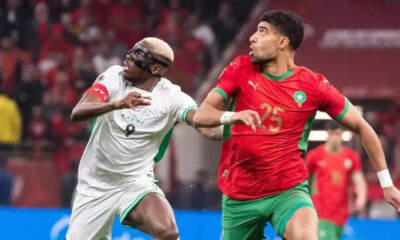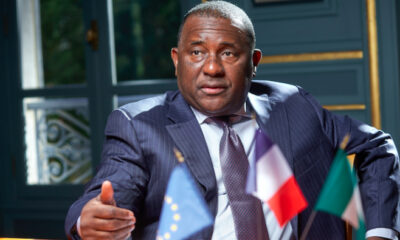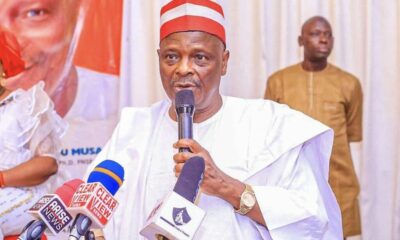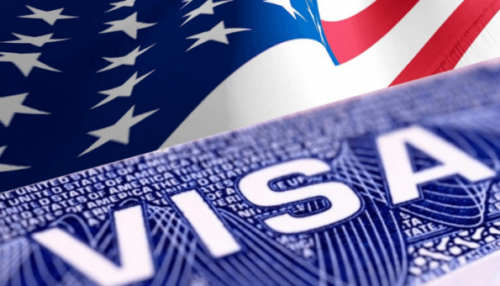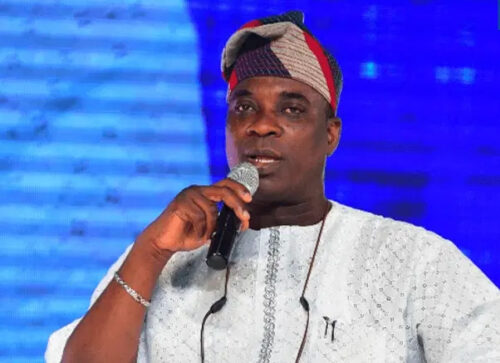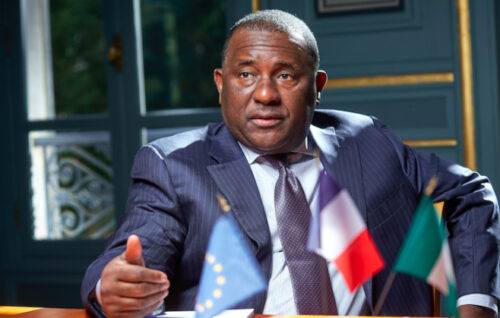
Following the outcry that has trailed the advocacy for the sale of the country’s national assets as a quick measure to fund the 2016 budget and boost the country’s foreign exchange reserves, the President/Chief Executive of Dangote Group, Alhaji Aliko Dangote, has dismissed insinuations that his advocacy for the sale of the assets was self-serving, saying he was not interested in any of the assets.
Dangote, who spoke in an exclusive interview with THISDAY, stressed that if the Nigeria Liquefied Natural Gas (NLNG) Company or any other national asset was offered to him, even on credit, he would not be interested in acquiring them.
Dangote, who is Africa’s richest man, said his advocacy for the government to sell down some of its interest in some of the national assets was to help boost the economy as well as to stabilise the naira exchange rate, which has been under attack in the past few days.
According to him, he offered his proposal as a way out of Nigeria’s present economic recession because he is “a true Nigerian who really wants the issues about the economy to be sorted out”.
He added: “You know the issue, once your reserves are low, the banks, entrepreneurs, including external forces, would definitely attack your currency. They would speculate on your currency.
“We all know that the exchange rate of almost N500 to the dollar is not a true reflection of the value of the currency – the naira cannot be almost N500 to the dollar!
“But you see, if this thing is not handled properly, it can get out of hand. It can get to N600 to the dollar, or even N700 to the dollar.
“But the issue is, why did I suggest that we should sell some of the assets? I know the touchy one is the NLNG. I want to make it categorically clear that even if the government is selling NLNG on credit, I am not interested in buying.
“I don’t have any interest in NLNG and I will not buy it. It is not a business that I want to invest in. It is a mature business; that is what people don’t understand.
“You see, we should have invested heavily in all these Brass LNG, Olokola LNG, etc, when former President Olusegun Obasanjo started work on the projects, but we missed the opportunity.
“Today, you have massive LNG projects that have been done by Qatar, Australia and the United States is also exporting. But right now, all the gas that we have is even in the ground. Even Mozambique has a massive amount of gas and also Tanzania, and they are nearer to the markets than we are.
“So, if somebody is even going to invest in LNG, he would go to those areas and invest there and not here in Nigeria, because the investment here daunting. So my own suggestion is that even if we must sell, it doesn’t have to be 100 per cent of our interest in NLNG.”
Dangote maintained that even if NLNG was bringing in $1.5 billion into the federal government’s coffers, once the government reduces its stake in the company and it is run more professionally, Nigeria would generate more funds from it.
“People are just saying it is better to go and borrow, but I don’t know where they are coming from. You see, with borrowing, if I have issues with my business today, the bankers who would lend me the money would want to see me doing something first to see how the business can survive. There would be conditionalities.
“But if you are not shedding weight, how do you expect somebody to help you with funding? You have to start first by trying to shed weight and showing the person (lender) who wants to help you with the assets you want to sell,” he explained.
Dangote maintained that Nigeria requires about $15 billion to jumpstart its economy, saying that if the amount were added to Nigeria’s foreign exchange reserves of about $25 billion, this would help attract foreign investors.
“I can assure you that if our forex reserves get to $40 billion, you will be shocked at how people will reject even buying dollars. So, is it worth it for us to keep assets that we are not using? Even the oil assets that I am suggesting for sale, they are not the producing assets. We have a lot of non-producing assets.
“The producing assets only form about 73 per cent of Nigeria’s portfolio. We can also unlock shut-in oil production because today we are losing about 700,000 barrels, be it through negotiations or whatever with the militants. These 700,000 barrels can easily give us about $1 billion a month. So, I am not saying that you should touch the producing assets.
“I am talking about the sale of the marginal fields and all those non-producing and capped oil wells that we have not even touched in the last 50 years. They have not been touched at all. They are there, just dormant.
“These assets form about 14.7 per cent of Nigeria’s portfolio. Some of those assets were bought by Shell and others. These are assets that you are not earning anything from.
“But the moment that you put these assets into use, the money that you will start getting from them, we will be talking about an additional $4 billion to $8 billion, and you can go and borrow money against that,” he added.
Sale Will Ease Borrowing
Furthermore, Dangote argued that it is easier to borrow when you have substantive collateral, than going to the International Monetary Fund (IMF) or World Bank.
This, he reiterated, is because the “medicine” the World Bank and IMF would prescribe to Nigeria, “we might not be comfortable taking those types of drugs”.
“Today, anything you say in Nigeria is turned into politics. If you look at it, based on the plan, we had a production target of four million barrels per day by 2015, which we have never achieved. So, both in oil and also in gas, we have never been able to achieve the gas master plan, which we have had for years.
“Some are saying don’t divest, but you see, five or three years ago, I would not have been talking about divestment from NLNG. But as we speak today, it is a mature business. Right now, the business has already plateaued and is sliding. Even the earnings, gas prices are coming down.
“Countries like Qatar and others are nearer to the market. Australia has massive gas. Everybody that signed LNG purchase contracts have renegotiated them with gas producers.
“Even those that have 20-year contracts have renegotiated. So, talking about sale of the assets, I am just wondering why we should hold on to these assets?
“Besides, every single thing that we touch in Nigeria is affected by the exchange rate. Even the persons selling garri or yam are watching the exchange rate. So, they would look at their produce and when they hear over the radio that the dollar is N500, they would change their prices without any justification.
“So we are not advising government to just sell its assets. For example, we have the joint ventures where government owns an average of 57 per cent stake in the oil blocs and what we are saying is that government should go below 49 per cent. When they go below 49 per cent, they would be able to raise $5 billion to $8 billion.
“And if they go below 49 per cent, they can go and borrow money because with that they can borrow money cheaper. Today, to go and borrow money abroad, for the likes of Shell, it would not exceed two and a half per cent. But today, Nigeria cannot borrow money at a single-digit interest rate,” he said.
He recalled that when the international oil companies (IOCs) sold their Nigerian assets, they did so when oil prices were high. He said: “People always forget why the Shell and ConocoPhillips sold at the time they sold, they sold at the time when they saw that the price was at the highest, because they track prices.
“Honestly speaking, that was when our government should have known that portfolio-wise than the best time for them to get the best value from the assets.
“So today when you still need that liquidity, you should still consider it as an option.”

 BIG STORY1 day ago
BIG STORY1 day ago
 BIG STORY2 days ago
BIG STORY2 days ago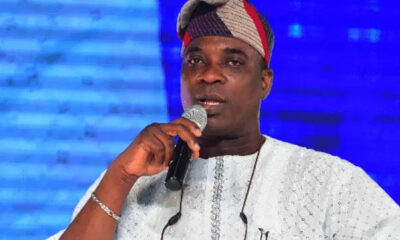
 BIG STORY3 days ago
BIG STORY3 days ago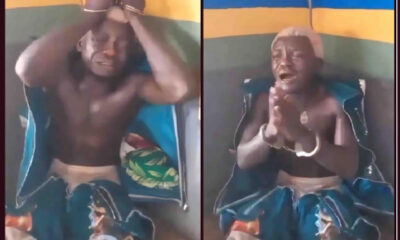
 ENTERTAINMENT2 days ago
ENTERTAINMENT2 days ago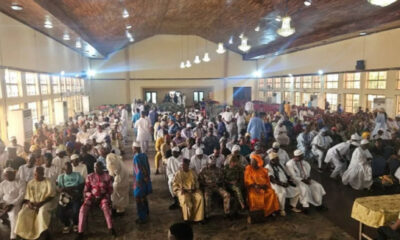
 BIG STORY2 days ago
BIG STORY2 days ago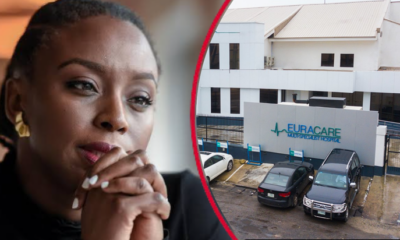
 BIG STORY3 days ago
BIG STORY3 days ago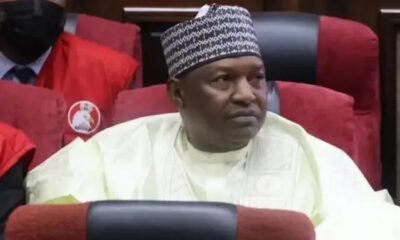
 BIG STORY3 days ago
BIG STORY3 days ago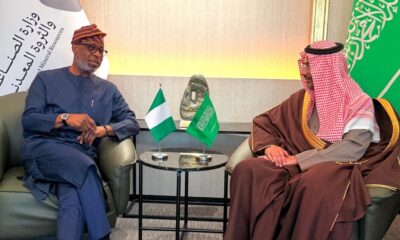
 NEWS2 days ago
NEWS2 days ago









